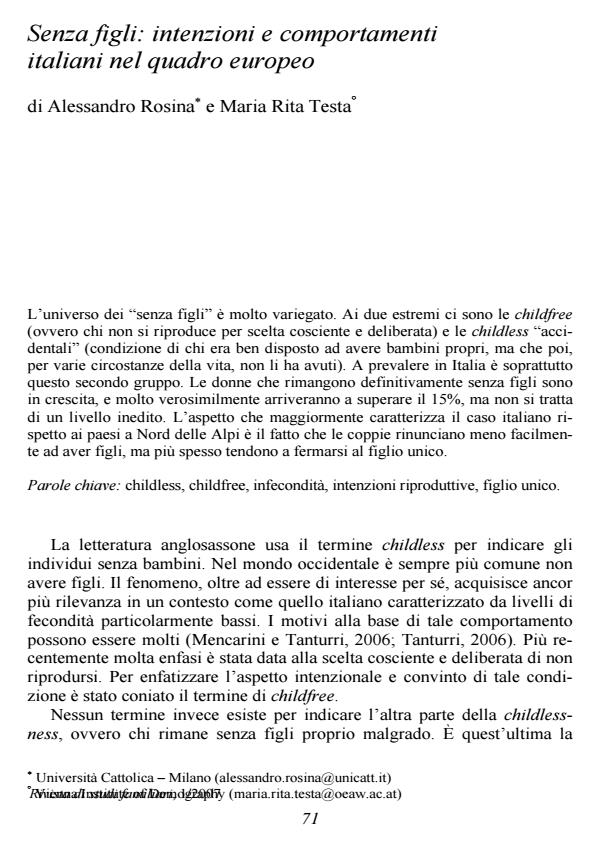Senza figli: intenzioni e comportamenti italiani nel quadro europeo
Journal title RIVISTA DI STUDI FAMILIARI
Author/s Alessandro Rosina, Maria Rita Testa
Publishing Year 2007 Issue 2007/1
Language Italian Pages 11 P. 71-81 File size 167 KB
DOI
DOI is like a bar code for intellectual property: to have more infomation
click here
Below, you can see the article first page
If you want to buy this article in PDF format, you can do it, following the instructions to buy download credits

FrancoAngeli is member of Publishers International Linking Association, Inc (PILA), a not-for-profit association which run the CrossRef service enabling links to and from online scholarly content.
Childlessness arises from a heterogeneous universe, at one end of which there are childfree people, individuals who have taken a conscious and deli-berate decision against having children, and at the opposite end there are the involuntarily childless, those who would have liked children of their own but, for different reasons, were not able to realize their wish. The latter group prevails in Italy where the proportion of childless women among those born in the 1960s will very likely reach 15%, a percentage which is not however a new low, but rather similar to that of women born in the 1920s and 1930s. Compared to the North European countries, Italian cou-ples do not easily give up having children even if oftentimes they have only one child.
Alessandro Rosina, Maria Rita Testa, Senza figli: intenzioni e comportamenti italiani nel quadro europeo in "RIVISTA DI STUDI FAMILIARI" 1/2007, pp 71-81, DOI: